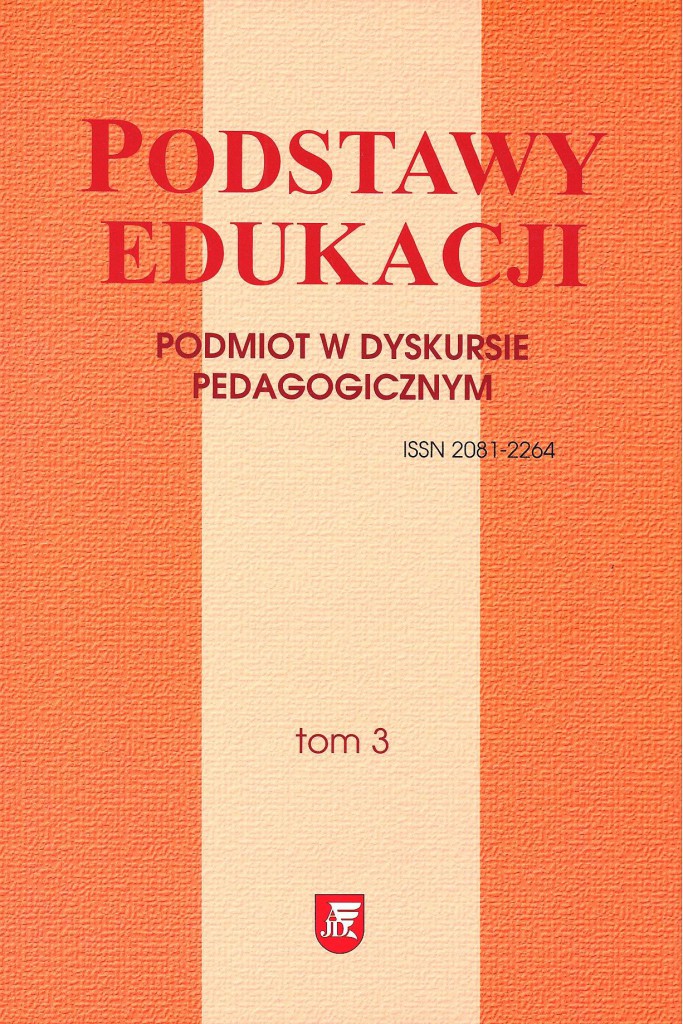Abstrakt
Technologie informacyjne odmieniły świat, jeszcze 10 lat temu Internet był luksusem, a posługujący się komputerami uważani byli za ludzi nowoczesnych. Teraz nikt nie wyobraża sobie życia bez dostępu do komputera czy Internetu. W szkołach materiały do lekcji, wykłady czy ćwiczenia można pobrać ze strony WWW. Obecność platform e-learningowych zaczyna być koniecznością. Młodzież i dzieci chcą aktywnie uczestniczyć w społeczności szkolnej i uczelnianej. Zmieniają się tylko narzędzia do przekazu informacji, jest ich więcej, a dostęp jest coraz szybszy. Padają pytania o szkołę. Czy to zmierzch tradycyjnej nauki? Technologie informacyjne mamy traktować jako narzędzie i metodę kształcenia. Mogą stanowić nowy paradygmat edukacji.
Bibliografia
Cape Town Open Education Declaration: “Unlocking the promise of open educational resources” (2007).
Hamadoun Toure, sekretarz generalny International Telecommunication Union. Internet podstawowym dobrem ludzkości. http://www.ibard24.pl/blog/?p=1022 (2010).
http://www.farmerama.pl/ (10.08.2010).
Jańczyk, J. (2001). Adobe Atmosphere. Medycyna praktyczna. Portal dla lekarzy. http://www.mp.pl/artykuly/index.php?aid=7448&_tc=848A2A79E931437C A4C2D8F7894DFF20&print=1.
Kędzierska, B. (2010). Informatyczne przygotowanie nauczycieli. V Ogólnopolska Konferencja Naukowa. Konspekt nr 9. Kraków. http://www.wsp.krakow. pl/konspekt/konspekt9/inf_konf.html.
Małoszowski, R. (2000). Komputer jako narzędzie pracy nauczyciela. Konspekt nr 3. Kraków. http://www.wsp.krakow.pl/konspekt/konspekt3/maloszowski. html.
Pietrzak, A. (2009). Znaczenie i rozwój programu eTwinning w Polsce na tle Europy. W: E. Gajek, P. Poszytek (red.). eTwinning drogą do edukacji przyszłości. Warszawa.
Przegląd Virtual Worlds – Creative Commons License. http://www.futureforall. org/vr/virtualreality.htm (11.08.2010).
Realizacja europejskiego obszaru szkolnictwa wyższego. Materiały związane z procesem bolońskim (2009). Warszawa.
Sołtysiak, W. (2009). Integracja technologii informacyjnych z procesem kształcenia. W: A. Gofron, M. Adamska-Staroń (red.). Podstawy edukacji. Ciągłość i zmiana. Kraków.
Sołtysiak, W. (2010). Znaczenie nowych technologii w zarządzaniu procesem kształcenia. Recenzja artykułu Prof. nadzw. Uniwersytetu Rzeszowskiego dr. hab. Marka Palucha.
Virtual Reality. http://www.futureforall.org/vr/virtualreality.htm (10.08.2010).
Waligórska, B., Oleszczyk W. (2009/2010). Internet w dydaktyce i nauczaniu. Publikacje edukacyjne nr.8, http://www.publikacje.edu.pl/publikacje.php?nr=1529.
Wróblewski K., Wirtualne światy: nowy najgorętszy element dziecięcego marketingu? http://interaktywnie.com/biznes/blog-ekspercki/trendy/wirtualne-swiaty -nowy-najgoretszy-element-dzieciecego-marketingu-20 (10.08.2010).
Zychalska M., Komentarze 9. 2007. http://interaktywnie.com/biznes/blogekspercki/trendy/wirtualne-swiaty-nowy-najgoretszy-element-dzieciecego -marketingu-20.
Mam świadomość, że czasopismo jest wydawane na licencji Creative Commons - Uznanie autorstwa (https://creativecommons.org/licenses/by/4.0/legalcode).
Przesyłając artykuł wyrażam zgodę na jego udostępnienie na tej licencji.

